Description
QUESTION 1:
(30)
1.1
Explain why reading is so important in the foundation phase.
(5)
1.2
Rule and Land (2017:2) state that “most South African children do not learn to
read well.” Justify the reason for their statement.
(5)
1.3
Explain what you understand by ‘invented writing’ and why children use
invented writing.
(5)
1.4
By establishing print-rich classrooms, responsive reading spaces are created
that promote incidental reading. Discuss the role of the teacher in establishing
print-rich classrooms.
(5)
1.5
Pretorius et al (2016) and Willenberg (2018) recommend that teachers in
training be properly skilled to teach children how to read for comprehension.
Justify the reason for this recommendation.
(5)
1.6
Assess the benefits of establishing school community libraries.
(5)
QUESTION 2:
(35)
Study the picture below carefully and then answer the questions which follow.
2.1
Identify the reading approach used in the picture and substantiate your
answer.
(5)
2.2
Discuss THREE (3) characteristics of this reading approach.
(6)
2.3
Discuss the type of texts most suitable for this reading approach.
(5)
2.4
Explain the benefits of using this type of reading approach.
(4)
2.5
Your study guide introduces you to three other approaches that can be
used to teach reading. Identify the three reading approaches and
demonstrate how you will conduct reading with Grade 2 learners using each
approach.
(15)
QUESTION 3:
(20)
3.1
Substantiate how the reader response theory champions the reader’s role as
an active participant in the creation of meaning while reading a text.
(4)
3.2
The implications of Vygotsky’s concept of the More Knowledgeable Other
(MKO) position the teacher as the MKO. As a teacher, do you consider
yourself to be the MKO in the classroom? Provide an example of a reading
scenario where you defend this position.
(6)
3.3
Bandura (2005) believed that an individual will perform learned behaviours
from a social model or the media only if they are motivated to do so, and if
the behaviour proves to be useful to them. Discuss the role of motivation in
reading.
(5)
3.4
To apply behaviourism in the classroom, Schunk et al (2008) maintain
that teachers should associate learning and classroom activities with
pleasing outcomes. Demonstrate how you will achieve this in a reading
lesson with Grade 3 learners.
(5)
QUESTION 4:
(15)
4.1
Study the reading chart below.
TASK: Use the chart to plan a reading lesson for Grade 2 learners. Your planning
must be reflected on the template provided below. Remember that, as a teacher,
your main goal for reading should be to develop the learners’ understanding and
comprehension ability. The following aspects or characteristics of the reading
development process should be included in your planning. Complete sections A
and B.


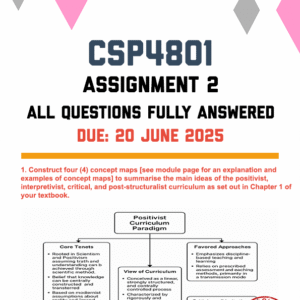





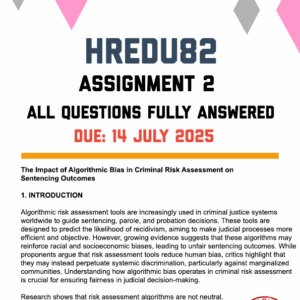
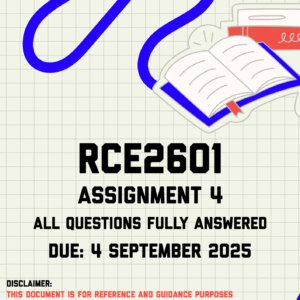



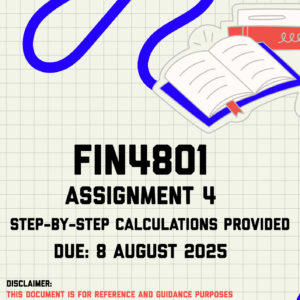
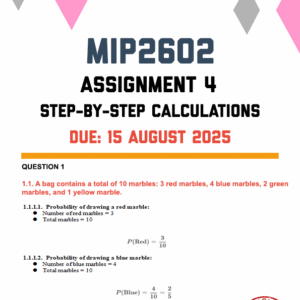

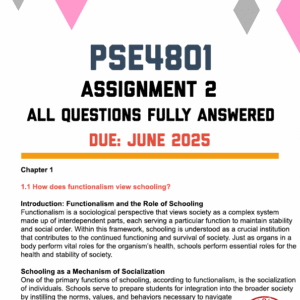
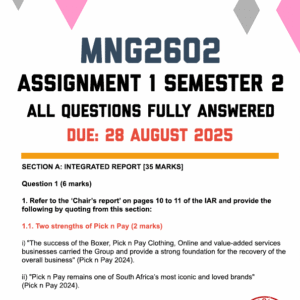


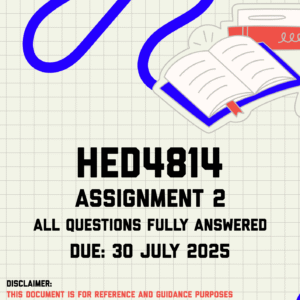


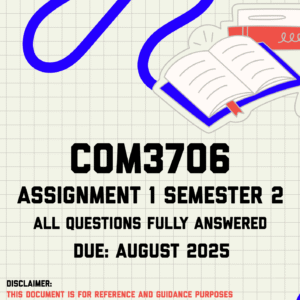





Reviews
There are no reviews yet.